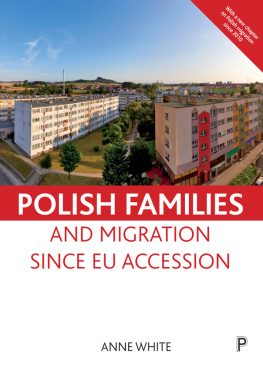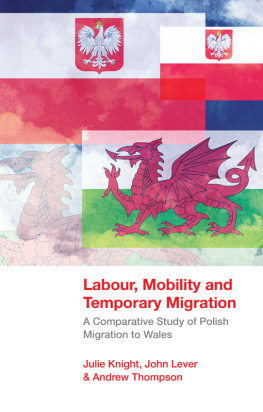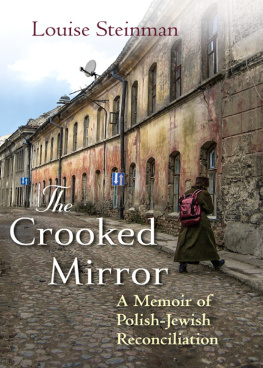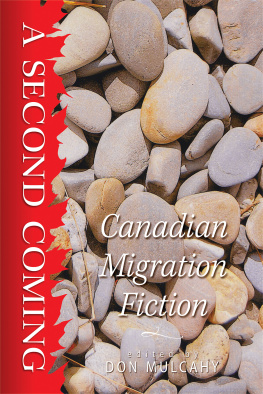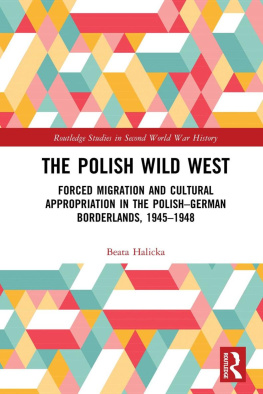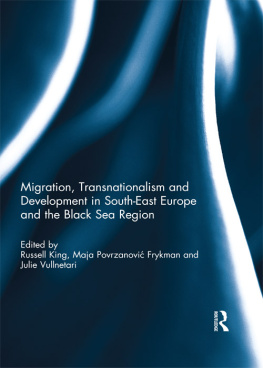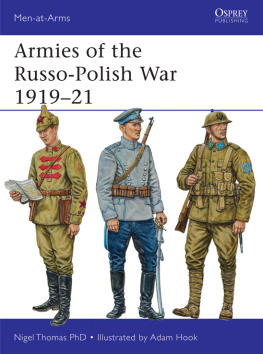First published in Great Britain in 2017 by
Policy Press University of Bristol 1-9 Old Park Hill Bristol BS2 8BB UK Tel +44 (0)117 954 5940 e-mail
North American office: Policy Press c/o The University of Chicago Press 1427 East 60th Street Chicago, IL 60637, USA t: +1 773 702 7700 f: +1 773-702-9756 e:
Policy Press 2017
British Library Cataloguing in Publication Data
A catalogue record for this book is available from the British Library.
Library of Congress Cataloging-in-Publication Data
A catalog record for this book has been requested.
ISBN 978-1-4473-3951-9 paperback
ISBN 978-1-4473-3963-2 ePub
ISBN 978-1-4473-3964-9 Mobi
The right of Anne White to be identified as author of this work has been asserted by her in accordance with the 1988 Copyright, Designs and Patents Act.
All rights reserved: no part of this publication may be reproduced, stored in a retrieval system, or transmitted in any form or by any means, electronic, mechanical, photocopying, recording, or otherwise without the prior permission of Policy Press.
The statements and opinions contained within this publication are solely those of the author and not of the University of Bristol or Policy Press. The University of Bristol and Policy Press disclaim responsibility for any injury to persons or property resulting from any material published in this publication.
Policy Press works to counter discrimination on grounds of gender, race, disability, age and sexuality.
Cover design by Policy Press
Front cover: image kindly supplied by www.istock.com
Readers Guide
This book has been optimised for PDA.
Tables may have been presented to accommodate this devices limitations.
Image presentation is limited by this devices limitations.
Contents
List of figures and tables
Figures
Tables
Acknowledgements
Many people helped with the research for this book. Above all, I am grateful to the 102 interviewees in Poland and England and also to the 1,101 respondents who participated in the opinion poll organised on my behalf in Poland. Many other people also helped in essential ways with the research, for example by finding interviewees, sharing ideas and information, hosting me during my visits to Poland or taking over my teaching and other duties while I was on a semesters study leave. I am particularly grateful to: David Bull, Barbara Cieliska, Debbie Clough, Tomasz Dudziski, Peter Duncan, Iwona Erturan, Barbara Everett, Magorzata Fabiszak, Krystyna Formejster, Micha Garapich, Eliza Giner-Wajda, Krystyna Iglicka, Ewa Iwanowska, Jacek and Mateusz Janowiak, Pawe Kaczmarczyk, Agnieszka Kiekiewicz-Janowiak, George Kolankiewicz, Danuta Kosturska, Agata Kocielska, Magda Kowalik-Malcolm, Olga and Leszek Kzka, Ewa Kuciba, Marta Lewandowska and Mr and Mrs Lewandowski, Janina and Magda osiewicz, Anna and Romuald Melerowicz, Mariola Milewska, Joanna Napieraa, Joanna Nikiel, Nina Parish, Jacek Partyka, Violetta Parutis, Urszula Pienczykowska-Partyka, Magorzata Pietrzycka, Magda Pokrzywa, Renate Rechtien, Renata Rogers, Anna Rydzewska, Sawomira from the Dom Nauczyciela in Suwaki, Krystyna Sobkowiak, Joanna Szymanowska, Pawe Walawender, Maggie Ward-Goodbody and the head of Kindergarten 1 in Sanok. My husband, Howard, and daughters Tamara and Lucy, were supportive at every stage of the research.
Most of the research was financed by the British Academy (Small Grant SG-48522, Family migration as a livelihood strategy in contemporary Poland), and the project was completed during a semester of study leave from the Department of European Studies and Modern Languages, University of Bath.
ONE
Introduction
For the time being weve chosen England. (Anna, Bristol, 2009)
This book explores the reasons why so many Polish families, with children, have come to live in the UK since 2004. However, the scope of the book is much broader than this. Family migration from Poland can only be understood in the context of how people make their livings in particular places in Poland, and why people living in those places choose to leave. The book is therefore about migration from Poland in general.
It is also about the experiences of Poles in England, and the factors that shape their thoughts about how long to stay. Here the focus is narrower, concentrating on working-class families. Other researchers have published articles about more highly educated and/or young childless Polish migrants While some migrants may be compared to tourists, who come and go, hardly having to engage with UK society or public services, Polish parents need to engage. As this book demonstrates, they are also likely to remain in the UK. Hence their experiences and requirements are particularly important to policy makers as well as to UK society more generally. If the parents are not highly qualified and do not speak much English, they may need particular support.
Mass migration by Polish families to the UK, and to European Union (EU) countries in general, is a new phenomenon. Home Office data suggest that the number of children arriving in the UK doubled year by year from 2004-06, peaked in 2007 and then began to fall slightly.
The research interviews suggest that Polish families do not usually arrive in the UK intending to settle. This chapter opens with a typical comment: For the time being weve chosen England. Like migrants everywhere, but perhaps even more so in the context of EU-endowed mobility, many Poles simply do not know how long they will remain abroad. This is why it is sensible to explore why people make certain decisions which have a bearing on whether they stay or return, instead of asking directly how long they will stay and then producing statistics about their answers.
The main sources for the book were 115 interviews with Polish women, 82 in Poland and 33 in England; interviews and conversations with key informants; an opinion poll conducted in Poland; and participant observation as a volunteer English teacher. Most of the project was funded by the British Academy. The book presents many verbatim quotations from the interviews, with the aim of presenting migration through migrants eyes. Since the book is designed for a wide range of readers, this chapter does not provide a detailed review of the scholarly literature on each topic. Instead, it concentrates on developing ideas which are particularly relevant to this book and which inform the analysis in subsequent chapters.
Causes of migration: a livelihood strategy approach
The dynamics of the global economy help shape migration across the world. However, people also migrate because of specific factors in the sending country (in this case Poland) and the receiving country (in this case the UK). Migration scholars often use the term pull factor to refer to aspects of the receiving society, such as higher wages, which are attractive to migrants. By contrast, push factors, such as low wages, propel migrants from sending countries.
The terms push and pull are sometimes criticised for suggesting that migration is like a simple machine. One of the main aims of this book is to show the actual complexity of the migration process. However, push and pull are useful metaphors for analysing migrants motives, particularly since migrants themselves often have a sense of being pushed and pulled in different directions. Indeed, it is helpful to extend the metaphor. Most often, pushes and pulls are used to explain the first decision to migrate, but in fact migrants already living abroad also experience pulls and pushes, which influence their thoughts about how long to stay..
Pull and push factors can be studied in their own right. They include, for example, the nature of the UK labour market, with its demand for flexible, low-paid labour; the governments decision to open access to the UK labour market in 2004 for citizens of A8 (East-Central European) member states; or the level of unemployment in Poland. However, it is not the purpose of this book to contribute to migration scholarship on this macro level. Rather, the book explores

